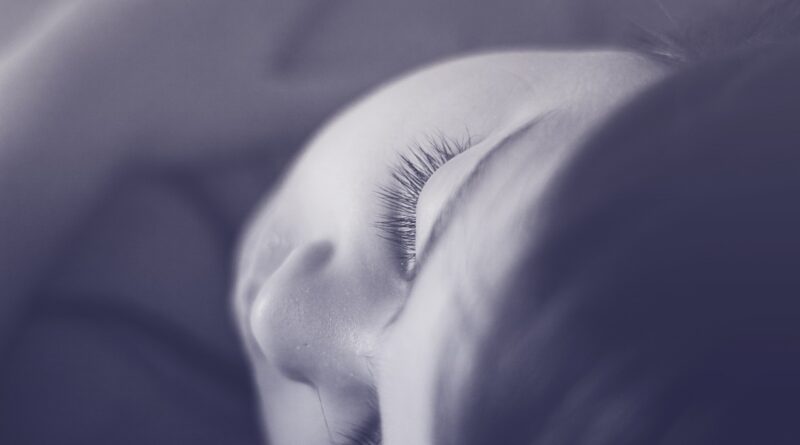How Much Sleep Does A Human Need? Unlocking the Mysteries of Sleep!
Sleep is a fundamental aspect of human life, yet its mechanisms and significance continue to fascinate scientists and laypeople alike. From the vital role it plays in our overall health and well-being to the mysteries surrounding its necessity, the topic of sleep is rich with intrigue. In this article, we’ll delve into the questions of why humans need sleep, what science understands about this fundamental aspect of our lives, and the consequences of sleep deprivation.
Why Do Humans Sleep?
The question of why humans need sleep has puzzled scientists for centuries. While the precise answer remains elusive, researchers have identified several key functions that sleep serves. One prominent theory suggests that sleep plays a crucial role in the consolidation of memories and learning. During sleep, the brain processes and stores information gathered throughout the day, helping to solidify memories and enhance cognitive function.
Additionally, sleep is essential for the body’s physical restoration and repair processes. While we sleep, our bodies undergo a variety of repair mechanisms, including muscle growth and tissue repair. Sleep also regulates important physiological functions, such as hormone production and immune system activity, helping to maintain overall health and vitality.
Sleep plays a critical role in regulating mood and emotional well-being. Adequate sleep is linked to improved mood, better stress management, and a reduced risk of mental health disorders such as depression and anxiety. Conversely, chronic sleep deprivation can exacerbate mood disturbances and increase the risk of developing psychiatric conditions.
Does Science Know Why We Sleep?
While scientists have made significant strides in understanding the functions of sleep, the question of why we sleep remains incompletely answered. Various theories have been proposed, each offering insights into different aspects of sleep’s significance. One prevalent theory, known as the restoration theory, posits that sleep allows the body to recover from the wear and tear of daily activities, facilitating physical and mental rejuvenation.
Another theory, the evolutionary or adaptive theory, suggests that sleep evolved as a survival mechanism, enabling animals to conserve energy during periods of inactivity while remaining hidden from predators. This theory emphasizes the adaptive advantages conferred by sleep in terms of resource conservation and protection from environmental threats.
Research has highlighted the role of sleep in synaptic plasticity—the brain’s ability to reorganize and adapt in response to experiences. Sleep appears to promote synaptic pruning, the process by which unnecessary or redundant neural connections are eliminated, thereby optimizing brain function and efficiency.
Despite these insights, the precise reasons why humans need sleep remain a subject of ongoing investigation. The complexity of sleep’s functions suggests that it likely serves multiple purposes, with different stages of sleep contributing to various physiological and cognitive processes.
What Happens If You Don’t Sleep?
The consequences of sleep deprivation can be profound and far-reaching, affecting virtually every aspect of human functioning. In the short term, sleep deprivation can impair cognitive performance, attention, and decision-making abilities, leading to decreased productivity and increased risk of accidents and errors.
Chronic sleep deprivation is associated with a range of health problems, including obesity, diabetes, cardiovascular disease, and immune dysfunction. Prolonged sleep deprivation disrupts the body’s hormonal balance, leading to increased levels of stress hormones such as cortisol and impaired glucose metabolism, which can contribute to the development of metabolic disorders.
Inadequate sleep is linked to an elevated risk of mental health disorders, including depression, anxiety, and bipolar disorder. Sleep plays a crucial role in regulating mood and emotional stability, so chronic sleep deprivation can exacerbate existing mental health conditions or precipitate their onset.
In extreme cases, prolonged sleep deprivation can have life-threatening consequences. Studies have shown that extended periods of wakefulness can lead to hallucinations, delusions, and cognitive impairment resembling symptoms of psychosis. Severe sleep deprivation has also been implicated in cases of fatal accidents and medical emergencies.
Sleep is a complex and essential aspect of human life, playing a critical role in physical health, cognitive function, and emotional well-being. While the precise reasons why we sleep remain incompletely understood, research continues to shed light on the multifaceted nature of sleep’s functions.
Understanding the importance of sleep is crucial for promoting overall health and quality of life. By prioritizing sleep hygiene and adopting healthy sleep habits, individuals can optimize their sleep quality and mitigate the adverse effects of sleep deprivation. In a world that often prioritizes productivity over rest, recognizing the value of sleep is more important than ever. So, the next time you’re tempted to sacrifice sleep for the sake of productivity, remember: a good night’s sleep is not just a luxury—it’s a necessity for a healthy, happy life.

